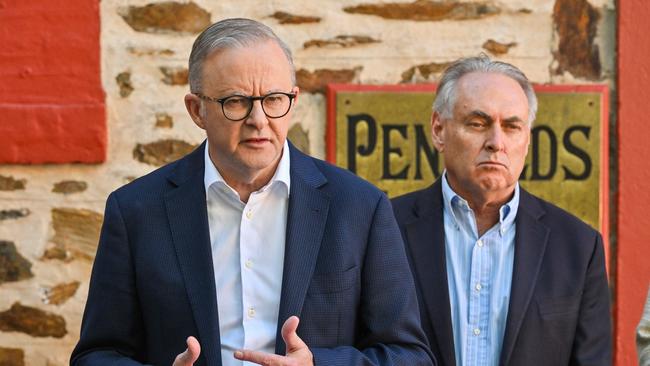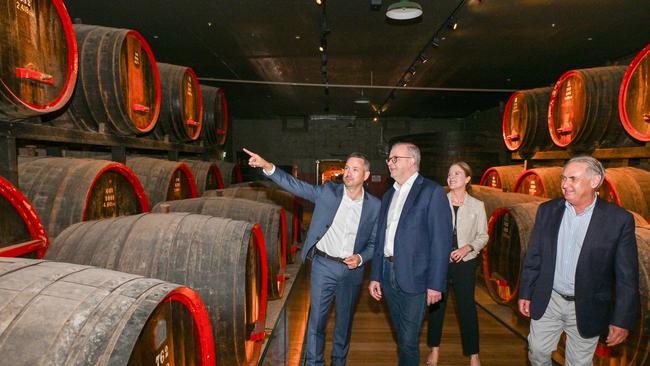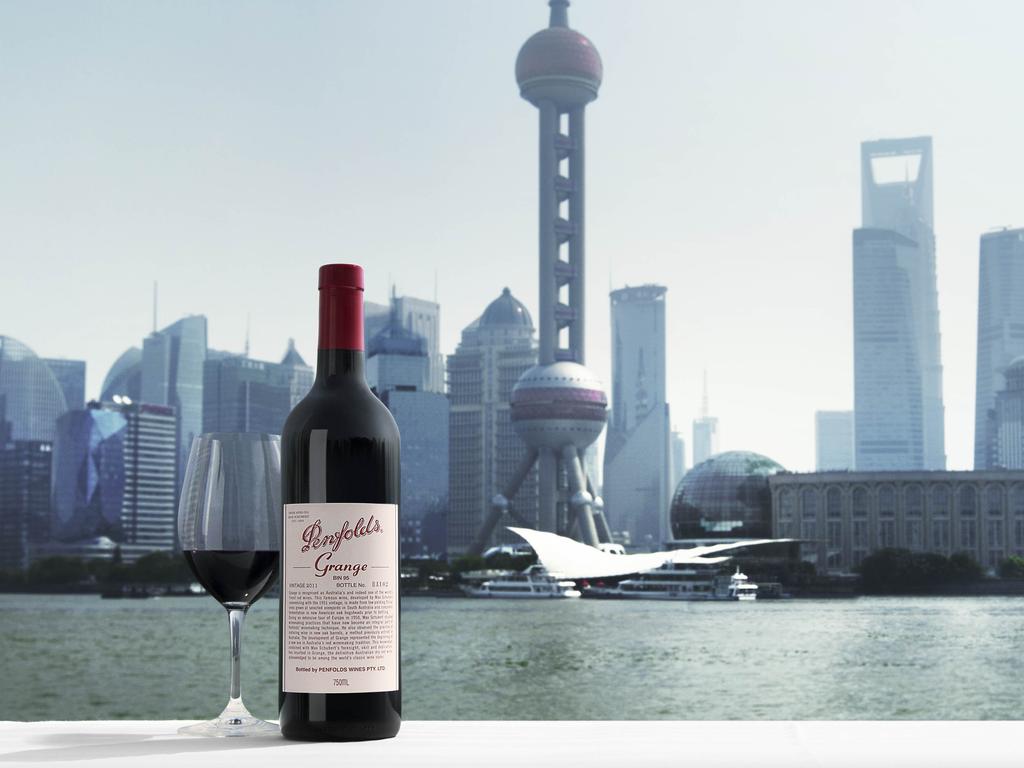Albanese government’s trade tactics criticised after Australia loses steel case to China in WTO
Trade experts say the Albanese government should never have dropped its wine and barley cases against China in the WTO, saying ‘what’s good for the goose is good for the gander’.

Trade experts say the Albanese government should never have dropped its wine and barley cases against China in the WTO after the international trade umpire gave Beijing a win in a retaliatory dispute over Canberra’s tariffs on Chinese steel products.
China’s trade win in Geneva was delivered overnight on Tuesday and came days before Beijing is expected to lift the crippling tariffs it wacked on Australian wine in 2020, part of an economic coercion campaign that at its peak ran to $20 billion a year.
In a face-saving deal, the Albanese government agreed last year to a Chinese request to halt Australia’s WTO cases against China. No similar deal was made with China’s case against Australia.
“I think it was a mistake of the Australian government to freeze those investigations. We had extremely strong grounds for countering China’s tariffs,” Prudence Gordon, a former senior Australian trade official, told The Australian.
“What’s good for the goose is good for the gander. If they want Australia to comply with WTO dispute settlement cases then [China] should similarly be prepared to go through the process and comply with whatever the process decides,” said Dr Gordon, the executive director of the Australian Centre for International Trade and Investment.
China lodged its case against anti-dumping and countervailing measures imposed by Australia’s Anti-Dumping Commission on Chinese wind towers, stainless steel sinks and railway wheels in June 2021, only two days after Australia took its case against Beijing’s wine tariffs to the WTO.

The WTO panel found that Canberra’s Anti-Dumping Commission had not given an “adequate and reasonable explanation” for its decision to increase its estimates of the Chinese producers’ costs of making the steel goods.
But the WTO did not support China’s attempts to get a finding on the countervailing duties, which Australia had already removed.
Beijing on Wednesday called the WTO’s ruling “objective, fair and unambiguous”, and urged Australia to address its “violations” by removing the disputed tariffs.
Trade Minister Don Farrell said Australia would “engage with China” and take steps to implement the WTO panel’s findings.
“Consistent with Australia’s support for the rules-based trading system, the Australian Government accepts the ruling of the WTO panel,” Senator Farrell said in a statement.
“The report does not diminish the integrity of Australia’s trade remedies system. Our system is evidence-based and non-discriminatory and will continue to respond effectively to unfair trade practices,” he said.
The Albanese government had already announced an end of a 10.9 per cent tariff on Chinese wind farm towers, a decision that was made public as China’s Foreign Minister Wang Yi visited Canberra last week.
The remaining tariffs run to 17.4 per cent for Chinese-made railway wheels and up to 60.2 per cent for Chinese-made stainless steel sinks.
Dr Gordon said the WTO had made “essentially quite minor points” against the Anti-Dumping Commission’s calculations. “It’s about small interpretations undertaken by the Anti-Dumping Commission. How they’ve calculated a value,” she said.
In an indication of the growing frustration with China’s state subsidy regime among rich world economies, documents released by the WTO overnight showed the European Union, Japan, the United States and the United Kingdom had registered support for Australia’s measures on the Chinese steel products.
The only third party to explicitly support China in the WTO case was Russia, which said Canberra’s defence was based on a “legally flawed thesis”.
While good news is expected in coming days on wine, China is still to lift its almost four year ban on Australian live lobsters or end the black-listing of more than half a dozen beef abattoirs.






To join the conversation, please log in. Don't have an account? Register
Join the conversation, you are commenting as Logout